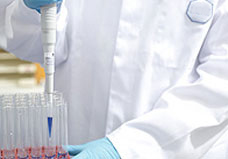| |
 |
|
|
|
|
|
|
Proctitis |
|
|
What is Proctitis
Proctitis is inflammation of the lining of the
rectum, called the rectal mucosa. Proctitis can be short term
(acute) or long term (chronic). Proctitis has many causes. It may
be a side effect of medical treatments like radiation therapy or
antibiotics. Diseases like ulcerative colitis, Crohn's disease,
and sexually transmitted diseases may also cause proctitis. Other
causes include rectal injury, bacterial infection, allergies, and
malfunction of the nerves in the rectum.
Both infectious and non-infectious causes are responsible for the
symptoms associated with proctitis. Trauma to the rectum due to
anal intercourse or objects inserted in the rectum are common
non-infectious causes. Sexually transmittable diseases infections
(gonorrhea, herpes, syphilis, rectal warts, and chlamydia) are
responsible for the majority of cases of proctitis.
What
causes proctitis?
Many diseases spread by sex may cause proctitis, such as
gonorrhea, syphilis, or herpes. A rectal injury or putting objects
in the rectum may cause proctitis. Other causes may be radiation
therapy or anal sex. Proctitis is caused most often by sexually
transmitted diseases, including gonorrhea, syphilis, herpes
simplex (genital herpes), candidiasis, and chlamydia. It can also
be caused by inflammatory bowel diseases, such as Crohn's disease,
or ulcerative colitis (a chronic recurrent ulceration in the
colon) - with which it is a very common component. Occasionally it
is caused by an amoeba that causes dysentery.
In addition to these infectious causes, some antibiotic
medications used to treat an unrelated infection may actually
cause proctitis. While antibiotics selectively inhibit the growth
of particular bacteria in the bowel, other microorganisms can
withstand the antibiotics, multiply, and cause infection. Trauma
and radiation therapy for cancer of the pelvis or lower abdomen
are examples of noninfectious causes of proctitis.
Treatments
for proctitis?
Once the underlying cause of the inflammation is diagnosed,
appropriate treatment begins. Antibiotics are given for bacterial
infections. There is no cure for genital herpes, but the antiviral
drug, acyclovir, is often prescribed to reduce symptoms.
Corticosteroid suppositories or ointments such as hydrocortisone
are used to lessen discomfort, and the patient is
encouraged to take warm baths to ease painful symptoms. Ulceratve
proctitis often responds well to corticosteroid enemas or foam, or
to sulfasalazine and related drugs.
Proctitis is a condition that tends to respond very effectively to
a combination of both conventional and complementary therapies.
Given the potential for complications from surgery, nonsurgical
therapy is preferred for the treatment of proctitis. The specific
treatment, however, depends on the cause of proctitis. For
example, a physician may prescribe antibiotics for proctitis
caused by bacterial infection. If the inflammation is caused by
Crohn's disease or ulcerative colitis, the physician may recommend
corticosteroids or enemas containing non-steroidal
anti-inflammatory medication. In addition to these conventional
treatments, acupuncture, herbs, and nutritional supplements, such
as omega-3 fatty acids and magnesium, may also provide relief from
the symptoms of proctitis.
Some symptoms of proctitis, including dilation of the blood
vessels on the surface of the inner lining of the rectum or colon,
may be treated by a procedure called endoscopic cauterization.
Most researchers agree, however, that more aggressive surgery
should only be considered when less invasive treatments have
proved ineffective.
Depending on the cause of proctitis, alternative medicine has
several types of treatments available. If proctitis is related to
gonorrhea, syphilis, or chlamydia, appropriate antibiotic
treatment is recommended. Supplementation with Lactobacillus
acidophilus is also recommended during and following antibiotic
therapy to help rebuild normal gut flora that is destroyed by
antibiotics. If proctitis is herpes-related, antiviral herbs taken
internally, as well as applied topically, can be be helpful. Sitz
baths and compresses of herbal infusions (herbs steeped in hot
water) and decoctions (herbal extracts prepared by boiling the
herb in water) can be very effective. Among the herbs recommended
are calendula (Calendula officinalis), comfrey (Symphytum
officinale), and plantain (Plantago major). Proctitis related to
candidiasis requires dietary alterations, especially elimination
of sugar from the diet. Any immunocompromised person needs close
medical attention. If proctitis is related to inflammatory bowel
diseases, the resolution of the underlying condition should
contribute to resolution of the proctitis. Acupuncture and
homeopathic treatment can be very useful in resolving inflammatory
bowel diseases.
|
|
|
|
Proctitis - treatment of Proctitis, Proctitis
types, Disease medicines, Proctitis symptoms, Proctitis and Disease
symptoms, Proctitis symptoms Disease and diagnosis, Symptoms and Solutions,
Signs and Symptoms, type of Proctitis, cause common, common Proctitis,
Proctitis List, causes list, Infectious Proctitis, Causes, Diseases , Types,
Prevention, Treatment and Facts, Proctitis information, Proctitis:
Definition, Proctitis names, medical Proctitis, medical Proctitis and
disorders, cell Proctitis, Proctitis Worldwide, Proctitis Research,
Proctitis Control, Proctitis Center, Digestive Proctitis Week, Information
about Proctitis, causes of different Proctitis, Proctitis Articles,
Proctitis and conditions, Health and Proctitis, Proctitis Patients,
Proctitis and Sciences, causes of alzheimer's Proctitis, Proctitis causes,
alternative medicine heart Proctitis, body ailments, Proctitis medicines,
medical antiques, type of blood Proctitis |
|
|





